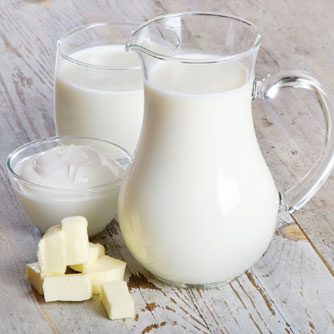
Milk is an essential component of a well-balanced and healthy diet. Like other dairy products in Sri Lanka, it is an excellent source of many nutrients required by the human body and drinking milk has been proven to have many health benefits. This article explores the various nutritional components of milk and their roles in supporting a healthy lifestyle.
The main nutritional components of milk and many other dairy products in Sri Lanka are:
- Energy
- Water
- Carbohydrates
- Fat
- Proteins
- Vitamins
- Minerals
- Minor Biological Proteins & Enzymes
Energy
Milk is rich in energy and contains nutritional components that provide an ample amount of calories for the functioning of our bodies. The protein, carbohydrate and fat components of milk in particular are responsible for producing high amounts of energy. Un-skimmed milk generally contains a higher amount of fat content than skimmed milk and therefore produces a higher level of energy.
Water
A large constituent of milk is water – comprising around 87%. Milk is a good source of water and provides an excellent way to maintain a healthy hydration for all the body’s cells, tissues and organs. In addition to boosting metabolism, it also transports nutrients as well as waste products inside the body, acts as a lubricant, helps maintain body temperature and is an important constituent of blood. A sufficient intake of water is a vital part of any healthy diet.
Carbohydrate
Lactose is the main form of carbohydrate found in milk and other dairy products in Sri Lanka and is responsible for most of its energy. Carbohydrates provide the energy that is required for the body to function and also plays an important part in hormonal regulation. Lactose in particular is beneficial to the intestines and helps absorb other important nutrients such as Calcium.
Fat
Milk is also rich in fat content. The fat content found in milk usually differs for various types of milk – standard milk, semi-skimmed milk, skimmed milk, etc. Not only does fat determine the texture and flavour of milk, it is an important energy store and hormone producer. Certain types of fat present in milk are also believed to help battle chronic diseases.
Proteins
All essential proteins and amino acids required by the body are present in milk. Proteins help build and repair the body’s cells, tissues and muscles. It is also a hormone and enzyme producer and plays an important role in other bodily functions. Dairy products in Sri Lanka such as butter, cheese and yoghurt also contain ample amounts of protein.
Vitamins
The vitamins found in milk and dairy products include Vitamin A, Thiamin, Riboflavin, Niacin, Pantothenic Acid, Vitamin B6, Vitamin B12, Vitamin C, Vitamin D, Vitamin E, Folate and Vitamin K. These vitamins play important roles and are beneficial to the human body in various ways.
Minerals
Milk is an excellent source of many minerals such as Calcium, Copper, Iron, Magnesium, Manganese, Phosphorus, Potassium, Selenium, Sodium and Zinc. These minerals support enzyme functions, transportation of nutrients and also helps maintain healthy bones and teeth.
Minor Biological Proteins and Enzymes
There are also several minor biological proteins and enzymes present in milk and dairy products in Sri Lanka. These include lactoferrin, lactoperoxidase, lipases and lactase – which all play different roles ranging from iron absorption to fat digestion to antibacterial functions.
